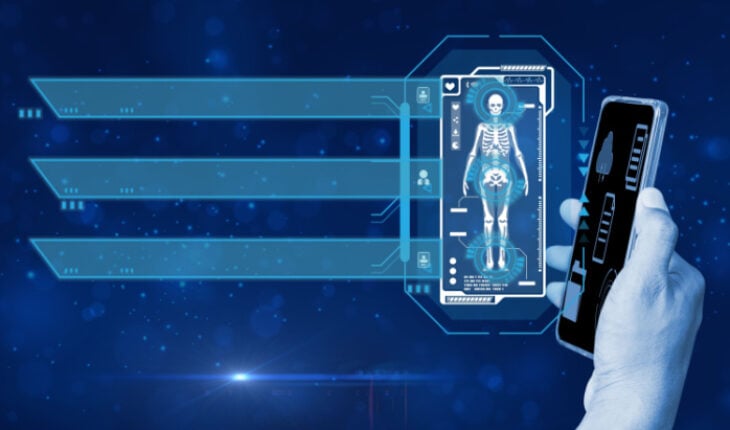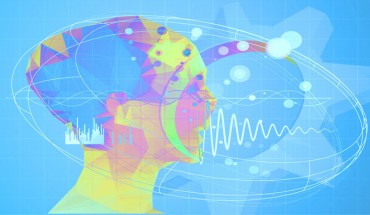Leading telehealth provider, Asda Online Doctor, conducted a nationwide survey to gauge public perceptions and usage of AI in relation to medical issues. The results revealed a concerning trend, with a staggering 60% of respondents admitting that they struggle to talk about their health concerns with doctors, and more than half do not turn to a doctor first when seeking medical advice.
The issue has significant implications for public health, as the study finds that UK adults who struggle to talk to their doctor are turning to alternative sources such as Google Search and ChatGPT, leading to potentially serious health consequences. Asda Online Doctor asked their team of GMC registered doctors to review answers from AI to discover the possibly harmful advice the British public is consuming on a daily basis.
Over three-quarters of the British public found medical advice from an AI helpful
The anxiety that prevents UK adults from talking to medical professionals has led many to look for medical advice elsewhere. Many are now turning to the Internet for information, perhaps as a way of avoiding those difficult conversations.
Around 1 in 3 people (30.1%) admit to taking medical advice from Google, and 1 in 10 aged 18 to 44 – an estimated 2.3 million UK adults – say they have taken medical advice from an AI platform like ChatGPT or Google Bard.
82% of those who have used AI for medical advice say they found the information helpful. In fact, AI proved to be the online source people found most helpful, beating out Instagram (81.4%), Google (78.3%), TikTok (76.6%), X (formally known as Twitter) (70.1%) and Facebook (69.7%).
A fifth of all medical queries on AI platforms could be potentially harmful
Researchers at Asda Online Doctor went to ChatGPT and Google Bard with a range of symptoms to learn more about the medical advice that they provide. Their medical team then analysed the results to determine how helpful, unhelpful or potentially harmful the advice was.
The analysis revealed that two-thirds (65.7%) of the advice was helpful, and a much smaller share (11.4%) was unhelpful. However, the investigation also found that a significant proportion of the advice – 22.8% – was potentially harmful, the doctors noting that symptoms of ovarian cancer, ectopic pregnancy and HIV infection had been missed.
The majority of UK adults don’t go to a doctor when they have a medical issue
Less than half of UK adults (48%) report that they turn to a doctor first for advice. Instead, many turn to alternative sources such as NHS 111 (13.5%) or a family member (6.5%), and 1 in 5 (19.9%) go online.
1 in 7 UK adults’ first port of call, when they feel unwell, is Google. Gen-Z is also very sceptical of professional medical advice, with 42% stating that they have questioned a doctor’s diagnosis based on information they found online.
Additionally, nearly 3 in 10 of those who use AI every day said they would trust AI to give them medical advice – with 15% of men trusting AI compared to 12% of women.
Over a quarter of UK adults struggle to discuss STIs with their doctor
According to the survey, 26.1% of UK adults struggle to broach the topic of STIs with their healthcare provider, and almost 1 in 3 men (28.6%) find it difficult to talk about erectile dysfunction, a condition that affects 55% of men aged 40 to 70.
Women also find it tough to speak to their doctor about their sexual health. A quarter of UK women report that they find it difficult to discuss thrush with their doctor, and 1 in 8 (12.8%) say they find it hard to talk about menopause.
Young adults struggle as well, with 81.9% of those aged 18 to 24 finding it difficult to discuss their health with doctors. 1 in 3 (30.2%) say they find it hard to talk about their mental health, and nearly 1 in 4 (23.9%) struggle to talk about their body weight.
In response to the study, Dr Crystal Wyllie said:
“With more people using AI platforms on a daily basis, this might seem like a quick and easy way to get medical advice, especially for sensitive issues like sexual health. However, the information platforms like ChatGPT provide isn’t always the most accurate and can lead you down the wrong path.
Even if you’re short on time or feeling nervous to talk about tricky topics, nothing replaces talking to a trained medical professional.”
- Gut microbiome could delay onset of type 1 diabetes - 3rd April 2025
- The da Vinci 5 Robot Is Set To Transform Bariatric Care: - 31st March 2025
- Beyond money: the hidden drivers fuelling child food insecurity - 31st March 2025






